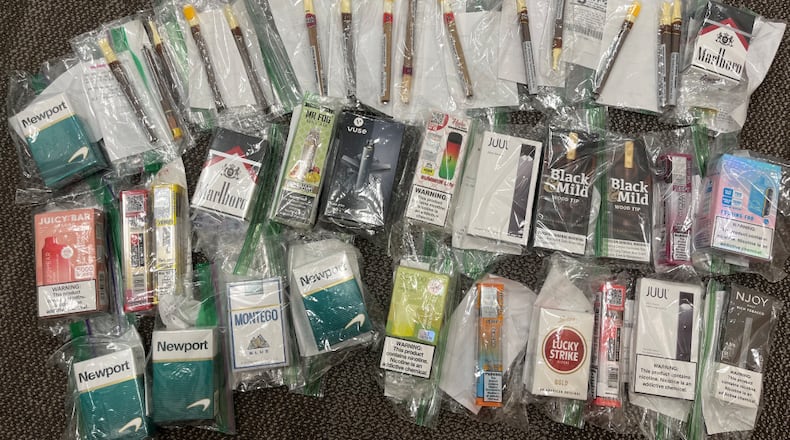A total of 129 retailers were checked throughout Beavercreek, Bellbrook/Sugarcreek, Bowersville, Cedarville, Fairborn, Jamestown, Spring Valley, Xenia and Yellow Springs, according to a public health release. That is 60% more retailers checked in 2024 compared to 2023, encompassing gas stations, convenience stores, tobacco/vape shops, liquor stores, grocery stores, drug stores and mass merchandisers, Greene County Public Health said.
Compliance checks are conducted to ensure that retailers are following the Ohio Tobacco 21 law. The ordinance, passed in October 2019, states “that it is illegal to give, sell, or otherwise distribute cigarettes, other tobacco products, or alternative nicotine products like e-cigarettes/vaping products to any person under the age of 21.”
These checks help protect the health and well-being of young people by preventing access to tobacco products, which have significant addictive properties and severe long-term health consequences, the release said.
The most recent Ohio Youth Behavior Risk Survey in 2021 found that approximately 20% of high school students and 9% of middle school students reported using e-cigarettes in the past 30 days, and around 3.3% of high schoolers and 3.1% of middle schoolers reported smoking cigarettes.
Early use of tobacco products such as vaping can lead to nicotine addiction, increasing the likelihood of developing chronic health conditions such as respiratory and cardiovascular diseases and harm brain development.
“Greene County Public Health is committed to reducing the rates of tobacco use among minors,” the release said. “The purpose of these compliance checks is not only to monitor and enforce the law but also to educate retailers about their role in preventing underage tobacco use.”
Establishments that fail to comply with the law are notified, provided guidance on how to ensure they adhere to the law in the future and are asked to complete an online training course.
Law enforcement of the respective retailer’s jurisdiction are notified of their failure to comply with the Tobacco 21 law as well.
“By holding retailers accountable, we aim to create an environment where young people are less likely to be exposed to tobacco products,” the release said. “This is where policies like tobacco retailer licenses can help enforce the Tobacco 21 law more effectively by providing a mechanism for monitoring, education and accountability, ultimately reducing youth access to tobacco products.”
About the Author
